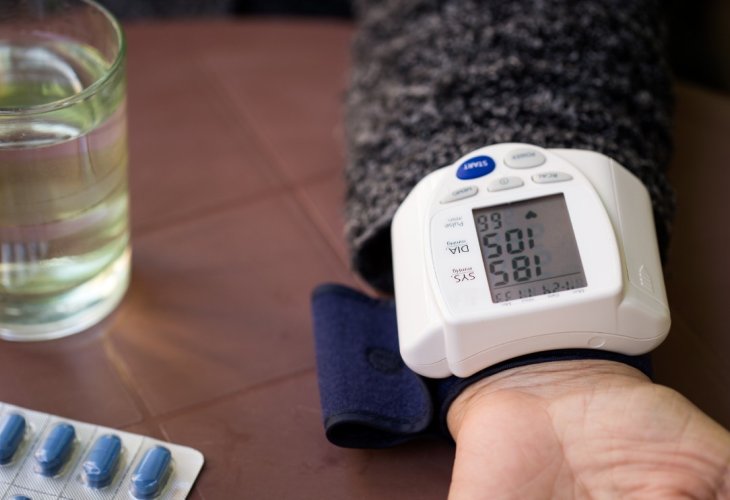Diabetes and Yom Kippur - Everything You Need to Know
The Yom Kippur fast presents a significant dilemma for diabetics and their doctors. Jewish law only exempts those whose lives are in danger from fasting. However, those who risk their health by fasting should not do so. Should diabetics fast? And what can be done to make fasting easier?
 (Photo: shutterstock)
(Photo: shutterstock)The question facing many diabetics is whether to observe the fast or risk unbalancing their blood sugar levels, as a lack of food and drink can damage kidney functions responsible for breaking down sugar. Before making a decision about fasting, consulting a doctor is crucial to determine if fasting is allowed, how it should be conducted, the possible complications, and what to do if one starts feeling unwell. After consulting with a doctor, one should seek guidance from a halachic authority for a clear ruling.
While healthy individuals' livers produce sugar normally even during fasting, diabetics with unbalanced blood sugar levels may face life-threatening extremes (low or high blood sugar) due to the lack of sugar control by the liver and inability for blood sugar to enter cells. The ability to fast without causing health damage depends on multiple factors, including type of diabetes, treatment, and general health. To maintain blood sugar balance, it is important to consult with a healthcare provider before fasting to determine if any changes in medication or insulin dosage are needed before and after fasting. Type 2 diabetics managed with diet alone can fast. Type 2 diabetics taking medication or insulin, and especially type 1 diabetics, must receive personal guidance on modifying their treatment. During the fast, frequent blood sugar monitoring is essential, and fasting should be immediately discontinued if blood sugar becomes very low. Therefore, consulting a religious authority is also important, as frequent sugar checks can also be a halachic consideration regarding the permissibility of fasting.
Who is Allowed to Fast?
Type 2 diabetics not on medication can fast fully.
Type 2 diabetics on insulin or other medications can fast but must regularly monitor their blood sugar throughout the day, as excessively high or low sugar levels are very dangerous to their health.
Who Should Not Fast?
- Type 1 diabetics who rely on insulin cannot fast because missing insulin can lead to hypoglycemic attacks.
- Pregnant women with gestational diabetes.
- Diabetics with frequent hypoglycemic events or who do not sense hypoglycemia.
- Uncontrolled diabetics with average blood sugar levels of 250 mg/dL or higher most of the day, as they are at increased risk of dehydration.
- Diabetics who have experienced diabetic ketoacidosis or those suffering from any infection or acute illness cannot fast.
How to Prepare?
Start preparations a day before the fast by drinking at least 8 cups of water throughout the day and avoiding sugary drinks, to enrich the body with fluids that aid in sugar breakdown. It's important to drink these cups of water consciously and gradually, not in a rush. Additionally, avoid salty foods the day before, such as olives, cheeses, soup powders, snacks, canned foods, and nuts, which dehydrate the body.
For the pre-fast meal, it's recommended to eat a meal rich in fiber and complex carbohydrates, such as quinoa, rice, or buckwheat, which break down slowly and provide long-term energy, unlike simple carbohydrates like fruits, candies, or white bread, which cause dryness and raise sugar levels.
Moreover, if you plan to fast, inform someone close or nearby. If attending a synagogue, ensure someone is aware of your situation and knows what to do in an emergency. Keep something sweet on hand to raise your blood sugar if you feel dizziness or a drop in sugar.
Four Tips to Help You Fast Easily:
- If blood sugar is stable and not prone to low levels, it is important to drink fluids, but adding sugar or eating sweets is unnecessary. In this case, you can drink water or tea and eat a slice of bread with spread.
- If blood sugar is low at the end of the fast, near hypoglycemia (below 70 mg/dL), it's advisable to eat or drink something with fast-acting sugar – tea with 1-2 teaspoons of sugar, fruit, or a slice of bread with a teaspoon of jam, etc.
- About an hour after the fast, eat a light meal such as vegetable soup or raw vegetables, a carbohydrate that gently raises blood sugar – a specific type of whole-grain bread, pasta, legumes, and proteins – egg, omelet, tuna, cheese, or alternatively, a quiche based on eggs, cheese, tofu, some vegetables, and a little flour.
- Gradually drink water throughout the evening, one cup every hour.
Prof. Julio Weinstein is a senior diabetes doctor at the DMC Diabetes Center and director of the diabetes unit at Wolfson Hospital

